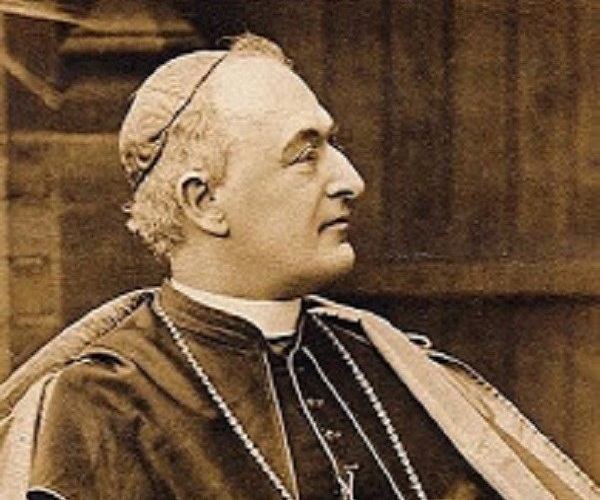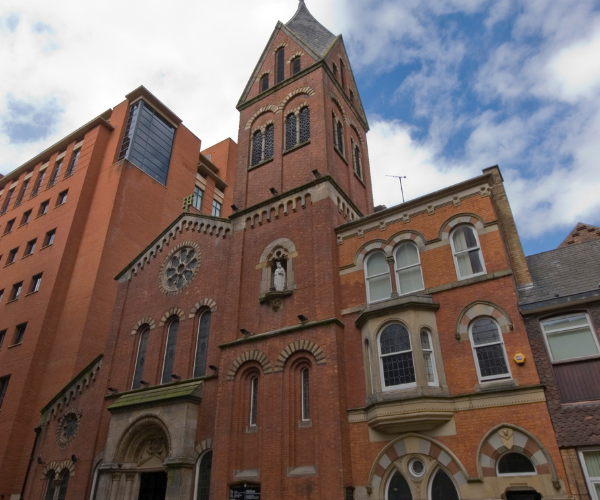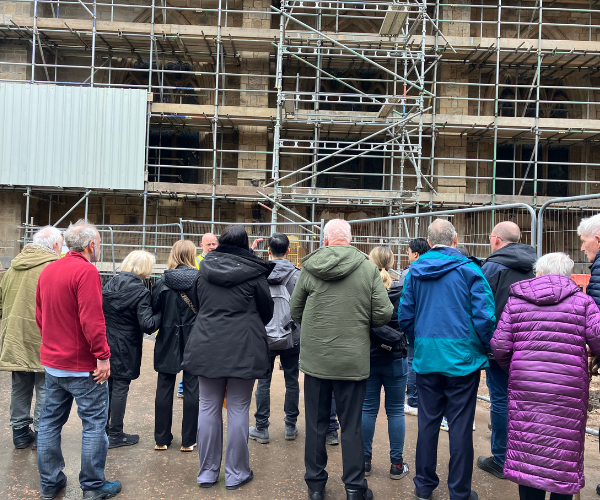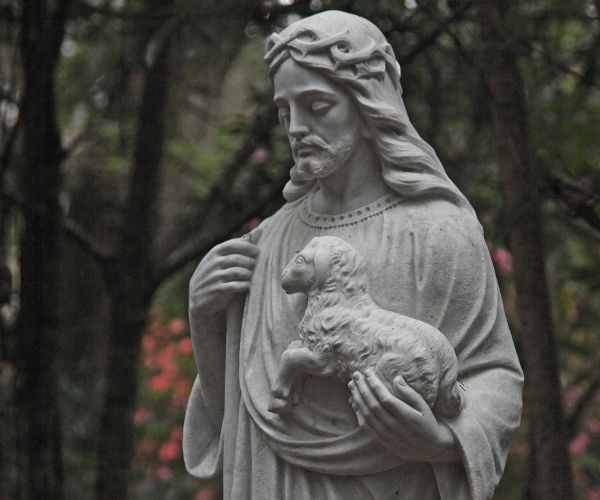
Cardinal Vaughan: The shy, gifted communicator
Thursday 12th April 2018Cardinal Vaughan was the second Bishop of Salford and the youngest bishop ever to be appointed in Salford. He remained Bishop of Salford for 20 years before becoming Archbishop of Westminster. His younger brother John later became an auxiliary Bishop of Salford in 1909. You can read more about all the fomer bishops here.
To mark the 150th anniversary of the foundation of the Catholic Truth Society have a chance to delve further into the history of Cardinal Vaughan with an article written by Fergal Martin.
He writes:
In the timid, intelligent eyes of a rather tall, handsome and rather stiff-looking Victorian clergyman, I see determination. Yet these are the eyes of someone who longed to be a missionary all his life but ended his long and furiously energetic life as Cardinal Archbishop of Westminster from 1892 to 1903. These are the eyes of the person who founded the organisation I work for 150 years later – the CTS.
Herbert Vaughan renounced a considerable inheritance and a warm, loving family to pursue his vocation as a priest. From a wealthy, established Catholic family that survived penal times, he was the eldest of 13 siblings and his entire life was marked by unstable health due to a weak heart.
He was painfully shy and upset colleagues and contemporaries with his apparent brusqueness. He was a genuinely pious and holy man, spending two hours a day in prayer, and was painfully aware of his many faults.
He learnt his faith from his mother. Missionary life fascinated him from an early age – he was overcome with the impulse to bring the good news of the gospel to those who were entitled to hear it.
He was schooled by the Jesuits and Benedictines and enjoyed a long association with the Carmelites. He was a man of the Victorian age, with a broad international view developed by travel.
Vaughan, it seems, was never a parish priest or even a curate and after training for the priesthood in Rome became vice-rector at the new seminary at Ware, where he was popular and spent time investigating priestly training.
He co-founded a missionary society of diocesan priests, the Oblates of St Charles, and a new missionary order, the Mill Hill Missionaries. He absorbed himself in his first love – evangelisation – and the order grew and prospered under his care. He had found his great mission for life.
But he was a marked man. At only 40 he was made Bishop of Salford, where he remained for 20 years, founding the Children’s Rescue Society and countless similar initiatives.
Just a few years earlier he founded the Catholic Truth Society, which became known as “the CTS” and continues to this day as an active publishing charity. It began as a small pamphleteering outfit, inspired by seeing the power of the Protestant printing press in America.
Vaughan went directly to his audience in the parish churches throughout the country and the “CTS boxtender” was born – laypeople with a small, portable wooden box opened up to display and sell halfpenny booklets to educate and support the faithful.
Vaughan’s CTS produced thousands of inexpensive, accessible and popular tracts that put Catholicism back in the frame. They were a source of knowledge, spiritual food, catechesis and novelty. Catholics at last belonged. Readership boomed between the 1920s and 1940s as two horrific wars took their ghastly toll on the human spirit and psyche. CTS’s benchmark was the best authors writing on the things that mattered. Readers were encouraged to leave the publications on buses, park benches and train seats after reading them. The movement’s army then was, as it remains today, a combination of readers who could buy CTS booklet very cheaply and donors who gave generously to support the mission to evangelise.
There are now 7,000 booklets in CTS’s archive. Those I have read all whisper the same forceful truth, that God loves each of us deeply and without reserve, no matter who we are or what we have done. Jesus demonstrates that all forms of death have been conquered by his passion and resurrection. There is nothing to fear in this life.
Vaughan bought the Tablet and was at the heart of Catholic communications, writing and editing long into the night. His motto was that the truth must be communicated no matter how unpopular it might seem. People may reject it, grapple with it or accept it, but they have the right to hear it. He was fully engaged in the political, social and ecclesiastical issues of his day and was ready to modify his views where he saw the truth was better served for doing so.
Then bad news came – a request from the Pope to become Archbishop of Westminster. He begged to be excused but when he could see there was no way out, at the age of 60, he threw himself into the role with all his energy, despite increasing illness.
As a great fundraiser, he was able to build Westminster Cathedral, surprising everyone by the sheer size of the project. He wanted to put Catholicism back on the map and to inspire and encourage his flock after centuries of being forced into the shadows – as Christ had been.
He died at Mill Hill among his missionary order confreres on June 19 1903 at the age of 71 and the first liturgy in the almost-finished cathedral was his own requiem.
On CTS’s 150th birthday this year, we should all be grateful to Herbert Vaughan for his impulse to evangelise, his commitment to the truth and his life of love and service.
A recent CTS research project among London University students revealed that one key question persists in an age where we are drowned in information – what is the purpose of my existence? Who will provide them with a considered, logical, accessible and truthful answer?
Fergal Martin is the CTS General Secretary
For more information on the 150th anniversary of the Catholic Truth Society visit http://www.onefifties.org/ or to purchase the set of 25 limited edition onefifties titles (£30) drawn from the CTS archives go to: www.onefifties.org/



